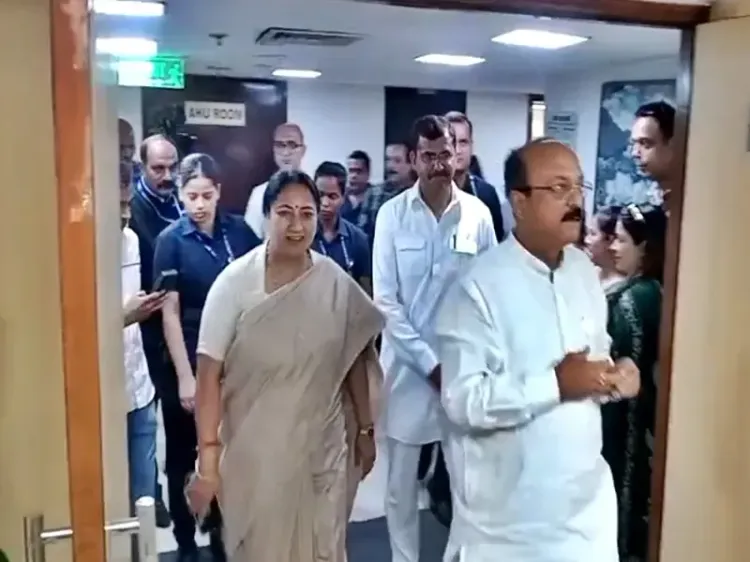What Insights Did Delhi CM Gupta Share During the Interactive Meeting with Students and Parents?

Synopsis
Key Takeaways
- Open Dialogue: Encouraging communication between government and citizens on education.
- Fee Regulation: The new bill aims to control arbitrary fee hikes.
- Parental Involvement: Parents will have a formal role in school governance.
- Committee Formation: Fee Regulation Committees will include parents, teachers, and management.
- Fundamental Right: Education is recognized as a fundamental right that needs protection.
New Delhi, May 3 (NationPress) Delhi Chief Minister Rekha Gupta and Education Minister Ashish Sood conducted a significant interactive session with students and their parents from various schools at the Delhi Secretariat on Saturday.
The objective of the meeting was to encourage an open dialogue between the government and citizens regarding critical issues in the education sector.
Parents and students came together to voice their concerns over unjustified fee increases, the role of private schools, and the need for inclusive decision-making.
Earlier that day, CM Gupta participated in the Accounting Standards Day celebrations at The Oberoi Hotel, organized by the Institute of Chartered Accountants of India (ICAI), where she addressed finance professionals, emphasizing the necessity of ethical financial practices in both corporate and public governance.
This interactive meeting followed the recent approval by the Delhi Cabinet of the transformative Delhi School Education (Transparency in Fixation and Regulation of Fees) Bill, 2025, which was passed earlier on Tuesday.
The bill represents a significant reform aimed at introducing accountability in fee setting and providing parents with a formal role in school governance.
According to the proposed legislation, every unaided private school in Delhi must establish a Fee Regulation Committee. This committee will consist of school management, teachers, and five parents selected through a lottery, ensuring representation from SC/ST/Backward Classes and at least two women. No fee increase can occur without the committee's consent.
“Education is a Fundamental Right, and this Bill is a step toward safeguarding that right from commercial exploitation,” stated Chief Minister Gupta during a media briefing. “For years, parents have faced unjustified fee hikes and threats of expulsion. This Bill empowers them to ensure fair treatment.”









